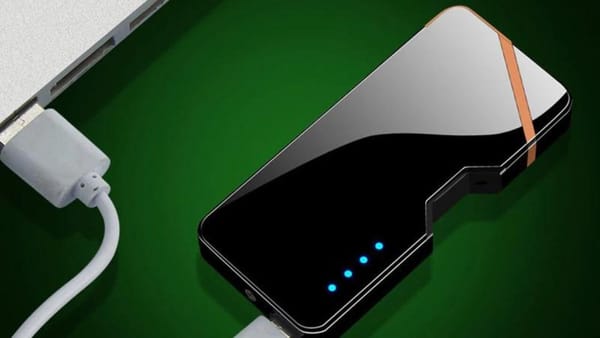RVing offers the freedom to explore without sacrificing the comforts of home. But to keep those comforts powered up, you need the right generator. This guide will help you navigate the maze of options to determine what is the best generator for an RV.
Key Takeaways:
- Understanding the power needs of your RV is crucial to selecting the right generator.
- Inverter generators offer quiet operation and are suitable for powering sensitive electronics.
- Fuel efficiency and generator size are important factors to consider for convenience and cost-effectiveness.

Understanding Your RV's Power Needs
Before diving into the world of RV generators, it's essential to understand your power needs. Every appliance in your RV, from the air conditioner to the coffee maker, contributes to the total power demand.
Calculate the wattage required for all your appliances to determine how much power your generator should provide.
The Importance of Inverter Generators
Inverter generators are the go-to choice for many RVers due to their quiet operation and ability to power sensitive electronics safely.
These generators adjust the engine speed to match the power demand, making them more fuel-efficient than conventional generators.
Deciding on Power Output
When considering the best generator for an RV, power output is a key factor. The generator must offer enough power to run your air conditioning unit, which is often the most power-hungry appliance in an RV. Look for a generator that can handle your AC unit's starting and running wattage.
The Quest for a Quiet RV Generator
Noise is a significant consideration for RV camping. Quietest generators enhance the camping experience by not disturbing the peace.
Inverter generators typically run quieter than conventional generators, making them ideal for use in campgrounds with noise restrictions.
Fuel Efficiency Matters
Fuel efficiency is not just about saving money; it's also about convenience. A fuel-efficient generator means fewer trips to the gas station and less worry about running out of power.
Dual fuel generators offer versatility in fuel choice and can be a cost-effective option.
Portable vs. Onboard Generators
Portable generators are great for their flexibility and ease of use. They can be moved around and used for purposes other than RV camping.
Onboard generators, however, are built into the RV for a seamless power solution but may require professional installation.
Solar Generators: A Green Alternative
Solar generators and solar panels offer a renewable energy source for your RV. They are quiet and emission-free but may not provide enough power for all your needs.
They work best when combined with traditional generators for a hybrid approach.

Yamaha Portable Generator: A Top Contender
Yamaha is a trusted name in the generator market. A Yamaha portable generator is known for its reliability, quiet operation, and fuel efficiency, making it a strong candidate for the best RV generator.
Sizing Your Generator Correctly
The size of the generator you need depends on your RV's power demand. A too-small generator won't handle the load, while an oversized generator is unnecessarily bulky and costly.
Aim for a generator that meets your peak power needs with some headroom for additional appliances.
The Dual Fuel Advantage
Dual-fuel generators can run on gasoline or propane, offering flexibility in fuel choice. This can be particularly useful during a power outage or when one type of fuel is more readily available than the other.
Conventional Generators: When Are They Suitable?
Conventional generators are typically more affordable and offer higher power output. They may be suitable for RVers who need more power and are less concerned about noise and fuel efficiency.
Wattage Considerations for Multiple Appliances
If you plan to run multiple appliances simultaneously, you'll need a generator with a higher wattage. Consider the starting and running wattage of each appliance to ensure your generator can handle the cumulative load.
The Role of Fuel Tanks in Generator Selection
The size of the generator's fuel tank affects how long it can run before needing a refill. A larger fuel tank means longer run times, which is convenient for extended RV trips without access to shore power.
Electric Power for Your RV Air Conditioner
Your RV air conditioner is likely the largest consumer of electric power. Ensure your generator can handle the starting and running wattage of your AC unit, especially during hot summer months.
Sensitive Electronics and Inverter Generators
Sensitive electronics like laptops and smartphones require clean, stable power. Inverter generators produce cleaner power compared to conventional generators, making them safer for these devices.
Shore Power vs. Generator Power
Shore power is the ideal source of AC power when available. However, a reliable generator is indispensable for off-grid camping or when shore power is not an option.



Air Conditioners and Power Supply
Air conditioners vary in power consumption. A rooftop air conditioner may require more power than a portable one. Ensure your generator can supply enough power for your specific air conditioning unit.
Calculating Enough Power for Comfort
To maintain comfort in your RV, calculate enough power to run essential appliances like air conditioners, refrigerators, and lights. This ensures a pleasant experience without power interruptions.
Power Stations: A Compact Solution
Power stations are compact, battery-powered units that can be recharged via AC power, solar panels, or car chargers. They are suitable for powering small devices and can be a quiet supplement to a larger RV generator.
The Impact of Engine Speed on Noise
The engine speed of a generator correlates with the noise level. Generators with variable engine speed, like inverter generators, tend to be quieter because they can run at lower speeds when full power isn't needed.
Fuel-Efficient Generators for Long Trips
For long RV trips, a fuel-efficient generator is a must. It reduces the frequency of refueling stops and can save money on fuel costs over time.
Powering Sensitive Electronics Safely
To power sensitive electronics without risking damage, use an inverter generator with clean power output. This ensures your devices operate safely and reliably.
Gas Powered Generators: Pros and Cons
Gas powered generators are common and widely available. They offer high power output but can be noisy and less fuel-efficient. Consider the trade-offs when choosing a gas-powered generator for your RV.
Maximizing Efficiency: The Role of Economy Mode in RV Generators
Economy mode in RV generators is like finding that sweet spot in your car's accelerator to maximize mileage. It's a feature that allows the generator to adjust its engine speed to match the power demand, rather than running at full tilt all the time.
This means fuel consumption drops significantly, which is a boon for RVers looking to stretch their fuel budget over long trips. Plus, when your generator isn't working as hard, it contributes to quiet operation, making your camping experience more serene.
Imagine you're enjoying the great outdoors with your RV parked amidst nature's splendor. You're using just a few lights and charging your phone, so your power needs are low. With economy mode, your generator scales back, conserving fuel and reducing noise.
It's like your generator is whispering, "I've got just the right amount of power for you." This feature not only saves on resources but also extends the lifespan of your generator by preventing unnecessary wear and tear.
Embracing Economy Mode: Enhancing Fuel Efficiency in RV Generators
When it comes to maximizing the longevity of your RV trips, understanding the economy mode feature on your generator can be a game-changer. Economy mode, often found on the best RV generators, allows the engine to adjust its speed to the current power demand, rather than running at full tilt.
This means that if you're only powering a few small items, your generator won't consume fuel unnecessarily. It's a smart way to extend your fuel reserves, especially when you're far from the nearest gas station. Plus, it contributes to a quieter operation, making your camping experience more serene.
Moreover, the economy mode isn't just about fuel efficiency; it's also about reducing wear and tear on your generator's engine. By operating only at the speed necessary to meet the power output requirements, you're ensuring that the generator isn't overworked.
This can lead to a longer lifespan for your generator, saving you money and hassle in the long run. Whether you're using a portable inverter generator or a larger dual-fuel generator, taking advantage of the economy mode can help you maintain more power for when you really need it, like running that all-important air conditioner on a hot day.

Understanding the Benefits of Economy Mode in RV Generators
Economy mode in RV generators isn't just a fancy feature; it's a game-changer for campers conscious about fuel consumption and noise levels. When activated, economy mode allows the generator to adjust its engine speed to match the power demand.
This means if you're just powering a few lights or charging your phone, the generator won't run at full throttle, saving you fuel and sparing your ears. It's particularly handy during the night or when you're enjoying the serene outdoors and don't need all the power your generator can muster.
Moreover, the quiet operation of your generator in economy mode enhances the overall camping experience. Imagine sitting outside your RV, sipping on your morning coffee, without the intrusive drone of a generator in the background. That's the kind of peaceful ambiance economy mode can provide.
Plus, it extends the life of your generator by preventing it from working harder than necessary. So, whether it's a Yamaha portable generator or another top brand, make sure to leverage economy mode for a more efficient and tranquil RV adventure.
The Versatility of Dual-Fuel Generators for RVs
Dual-fuel generators are like the Swiss Army knife of the generator world, offering flexibility and convenience for any RV enthusiast. With the ability to switch between gas and propane, these generators ensure you're never left in the dark during a power outage or when shore power isn't available.
Propane can be a great choice for longer storage without degradation, and it's also known for cleaner burning, which means less maintenance and a happier environment. This versatility is especially useful in remote areas where one type of fuel might be more readily available than the other.
But the benefits don't stop there. Dual-fuel generators typically offer a quieter generator experience compared to their single-fuel counterparts. This is because propane often allows for quieter operation, which is a blessing for both you and your fellow campers who value the quietest RV generators.
Plus, having a dual-fuel option means you can tailor your fuel choice to the situation. For instance, you might opt for propane when you need to conserve gasoline for your RV or other vehicles. The best RV generators are those that adapt to your needs, and dual-fuel models fit the bill perfectly.
The Evolution of RV Generators: From Gas to Solar Power Stations
Transitioning from traditional gas-powered generators to modern solar generators and power stations represents a significant leap forward in RV power generation. Solar panels for RVs are not just about being eco-friendly; they're about harnessing renewable energy to meet your electric power needs without ongoing fuel costs.
While solar generators may not yet provide the same level of power output as their gas counterparts, they offer a level of convenience and quiet operation that is unmatched. Imagine enjoying the great outdoors without the constant drone of a generator—solar power stations make this possible.
However, it's important to note that while solar generators excel in quiet operation and ease of use, they do have limitations, especially when it comes to powering high-demand appliances like air conditioners.
For those who need enough power to run multiple high-wattage devices, a combination of solar panels and a backup gas-powered generator might be the best solution. This hybrid approach ensures that you have all the power you need while still benefiting from the fuel efficiency and quietest operation that solar technology offers.
Whether you're looking for the quietest RV generator or the best portable generator for your needs, considering a solar option could be a wise move for both the environment and your RV lifestyle.

Harnessing the Sun: The Advantages of Solar Panels for RVs
Solar panels for RVs are like having your own silent, clean power plant that tags along wherever you go. They harness the sun's energy to charge your RV batteries, ensuring you have enough power for all your needs without a drop of fuel.
This is especially handy for powering low-draw items like LED lights or your air conditioning unit during the day. With advancements in technology, solar generators are becoming more efficient and can provide a significant portion of your electric power needs.
Now, let's paint a picture of a typical day in the life of an RVer with solar panels. You wake up to the sun rising, and as you sip your morning coffee, your solar setup is already busy at work, silently converting sunlight into electricity.
There's no engine noise, no fuel to refill, just the peaceful ambiance of nature and the satisfaction of using renewable energy. As the sun arcs across the sky, your solar panels keep your essentials running, and by the time the stars come out, you've collected all the power you need for a cozy night in your home on wheels.
The Importance of Fuel Tank Capacity
A generator's fuel tank capacity determines how long it can run before needing a refill. For extended trips, a larger fuel tank can provide peace of mind and reduce the hassle of frequent refueling.
Electric Power Needs for RV Camping
Electric power needs vary depending on the size of the RV and the number and type of appliances. Calculate your power needs to ensure your generator can handle the load for a comfortable RV camping experience.
Solar Generator Limitations and Benefits
Sunlight availability determines how much power solar generators can produce, which may not be enough for high-demand appliances. However, they offer environmental benefits and can be a good supplement to a traditional generator.
Size Matters: Generator Portability
The physical size of the generator affects its portability. A compact, portable generator is easier to move and store but may have less power output than a larger model.
DC Power for Charging RV Batteries
Generators with DC power outlets can charge RV batteries directly. This is useful for maintaining battery charge when not connected to shore power.
Power Demand and Generator Capacity
Match your power demand with the generator's capacity to ensure it can handle all your appliances. Overloading a generator can cause it to shut down or suffer damage.
Dual-Fuel vs. Single Fuel Generators
Dual-fuel generators offer the flexibility to use gasoline or propane, while single fuel generators are limited to one fuel type. Consider your fuel availability and preferences when choosing between the two.



The Noise Factor: Choosing a Quieter Generator
A quieter generator is preferable for a peaceful RV experience. Inverter generators are typically quieter than conventional generators, making them a popular choice among RVers.
Conventional Generators for High Power Needs
Conventional generators are suitable for RVers with high power needs who don't mind the extra noise and fuel consumption. They can provide the power required for larger appliances and multiple devices.
Wattage and Generator Selection
The wattage of a generator determines what appliances it can power. Choose a generator with enough watts to handle your RV's power needs, including the starting wattage of appliances with a high initial power draw.
The Problem with Noisy Generators
Noisy generators can disturb the peace of the outdoors and may not be allowed in certain campgrounds. Opt for a generator with quiet operation to avoid these issues.
Onboard Generators: Built-In Convenience
Onboard generators are built into the RV and offer convenience and ease of use. They are a good option for those who want a permanent power solution.
The Best RV Generator for Your Needs
The best RV generator for your needs depends on your power requirements, noise tolerance, fuel preference, and budget. Consider all these factors when making your selection.
Multiple Appliances and Running Wattage
When running multiple appliances, consider the running wattage of each to ensure your generator can handle the combined load without overloading.
Super Quiet Generators for Peaceful Camping
Super quiet generators are ideal for maintaining the tranquility of your camping environment. Look for generators with low decibel ratings for the quietest operation.

Traditional Generators: When to Use Them
Traditional generators are a good choice for those who need high power output and are less concerned about noise and portability. They can power heavy-duty appliances and tools.
Economy Mode and Fuel Consumption
Generators with an economy mode can reduce fuel consumption by adjusting the engine speed to the power demand. This feature can save fuel and extend run times.
How Generators Perform Under Load
Generators perform differently under load. Some may struggle with high-demand appliances, while others can handle the load smoothly. Test your generator with your RV's appliances to ensure it performs adequately.
Watts of Power for Your RV
Determine the watts of power your RV requires for all appliances and devices. This will guide you in selecting a generator with the appropriate wattage.
Power Demands and Generator Selection
Consider your power demands when selecting a generator. A generator that meets your demands will provide all the power you need without straining the system.
Limited Power and Generator Capabilities
Some generators offer limited power and may not be suitable for larger RVs or those with high power demands. Ensure the generator you choose can handle your specific needs.
Open-Frame Generators: Power vs. Noise
Open-frame generators offer more power but are typically noisier than enclosed inverter generators. They may be suitable for RVers who prioritize power output over noise level.
Carbon Monoxide Safety and Generators
Always prioritize safety when using generators. Choose models with carbon monoxide detectors and ensure proper ventilation to prevent dangerous buildup.
Summary
Selecting the best generator for an RV involves balancing power output, noise level, fuel efficiency, and portability. Inverter generators are often the preferred choice for their quiet operation and clean power, making them suitable for sensitive electronics.
Dual fuel generators provide flexibility in fuel choice, while solar generators offer an eco-friendly supplement. Size and fuel tank capacity are also important considerations for ensuring your generator meets your RV's power demands without being overly cumbersome.
By carefully assessing your needs and the features of different generators, you can find the perfect power solution for your RV adventures.

FAQ Section
Can I use a regular portable generator for my RV?
Yes, you can use a regular portable generator for your RV, but make sure it meets your power needs and consider the noise level and fuel efficiency.
How do I know what size generator I need for my RV?
Calculate the starting and running wattages of all the appliances you plan to use simultaneously. Choose a generator that exceeds the total wattage to ensure it can handle the load.
Are solar generators powerful enough to run an RV air conditioner?
Most solar generators are not powerful enough to run an RV air conditioner on their own. They are better suited for charging batteries and powering smaller devices. For running an air conditioner, you'll likely need a traditional fuel-powered generator.
Thanks for reading!
Click here to see our article on the best quiet RV generators!
You may also like...










